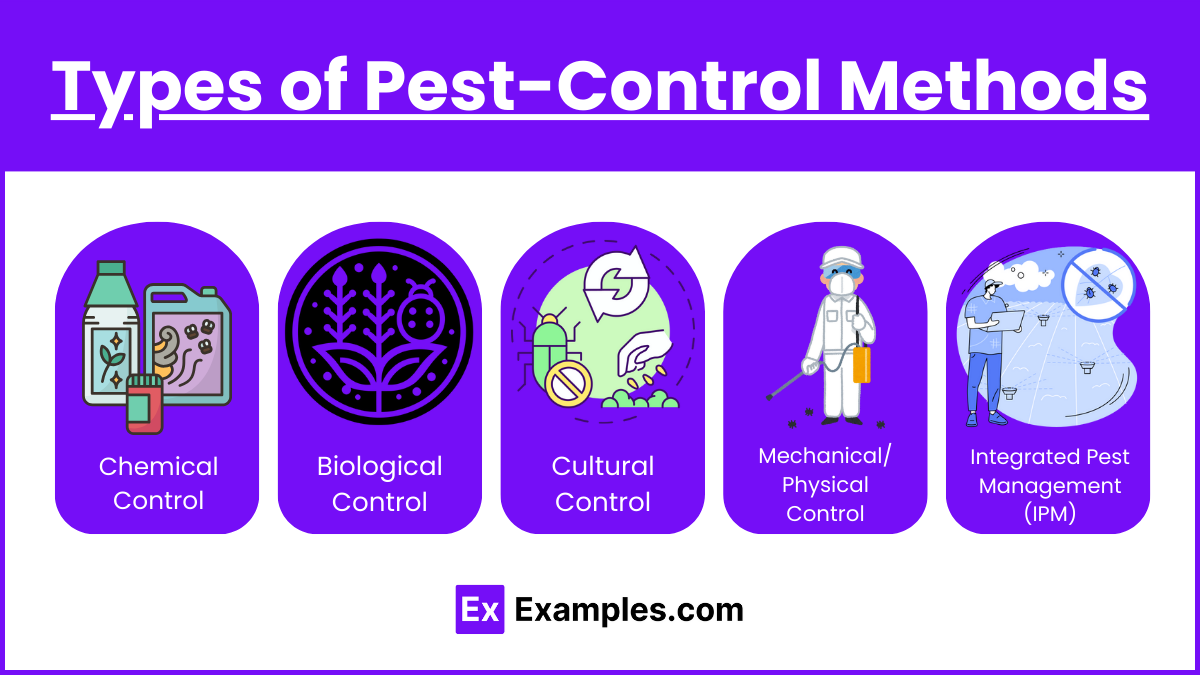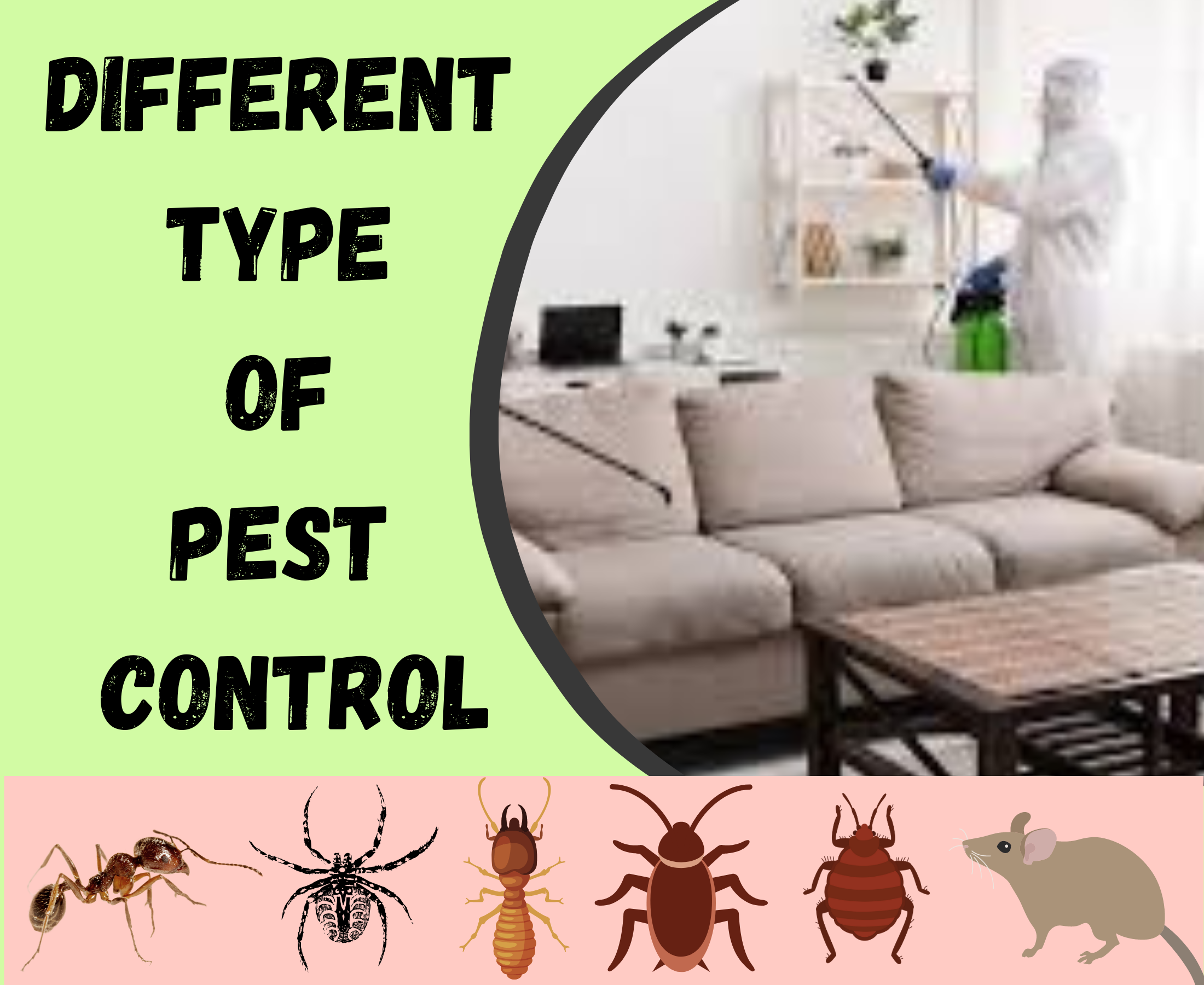Some Known Questions About Pest Control.
Table of Contents3 Simple Techniques For Pest ControlSome Known Questions About Pest Control.Fascination About Pest ControlIndicators on Pest Control You Need To KnowThe smart Trick of Pest Control That Nobody is Discussing
Limitations of Chemical Management Be able to evaluate insect problems, determine if monitoring is essential, and make ideal referrals utilizing IPM techniques. Recognize with various techniques of pest monitoring - their advantages and limitations. Recognize the value of valuable insects. It is not possibleor even desirableto rid yards of all parasites.This phase talks about (IPM), an approach that uses understanding regarding insects and their, practices, nonchemical methods, and chemicals to manage bug troubles. Additional details concerning IPM for particular plants is included in chapters that focus on those plants. Insects in a yard or landscape might consist of pests and termites, weeds,, animals, and birds.
Many individuals rush to draw, hoe, or spray every weed they see. Pests and weeds, nonetheless, play a duty in the. After growing a yard or establishing a grass, the natural procedure of plant succession begins to reestablish and nonnative plants. A weed growing in a grass stands for the initial stage in a sequence of events that, if permitted to continue, might at some point result in a forest.
What we call "insects" belong to an all-natural system at the workplace. An ecological community has no parasites. Just human beings take into consideration particular varieties parasites when they take place where they are not desired. We will be much more successful in managing undesirable varieties when we understand that these microorganisms adhere to foreseeable patterns that we can utilize to our advantage.
Some Of Pest Control
Bugs prone to a chemical were swiftly eliminated, leaving immune ones to breed and increase. It came to be clear that chemicals alone would not resolve all parasite troubles. Rather, overuse of pesticides triggered the advancement of immune parasites. Researchers began to develop a new technique to pest control. This new strategy was referred to as incorporated bug management (IPM).
An IPM plan permits some degree of pests in the atmosphere. Bugs are a lot less likely to survive a program that utilizes several methods of lowering their populations. Integrated insect monitoring was very first recommended by entomologists because bugs were the very first group of bugs to show challenging to take care of with chemicals alone.
A threshold is the factor at which action must be taken. IPM has prolonged beyond bugs to administration of all pest populations: weeds, disease microorganisms, and creatures.
Not known Facts About Pest Control
Administration rather than elimination of insects is the objective. An IPM strategy starts with a careful analysis of each pest invasion.
Clover growing in a grass may be go to the website watched as an undesirable weed, but as a bean it is manufacturing nitrogen for the soil and the flowers are providing nectar to honey bees and various other. Tolerance for some weeds might belong to an IPM plan. may be consuming the fallen leaves of a plant, yet when they are recognized as the larvae of Eastern tiger swallowtail butterflies, their damage might be endured so we can delight in the beautiful butterfly.

The second crucial tool in insect monitoring is early intervention. Being existing and observant in the garden makes sure early detection. Responding to problems promptly, prior to they have time to multiply, requires a less significant treatment. The 3rd essential device is recordkeeping; tracking what happens in the garden allows a garden enthusiast to identify patterns and make informed decisions.
The 2-Minute Rule for Pest Control
Several secure, practical, nonchemical techniques of plant security and bug management may reduce or eliminate the demand to spray. Various other techniques are most advantageous when made use of with pesticides. To execute administration methods correctly and to lessen losses, garden enthusiasts must be mindful of the kinds of insects that strike plants and understand pest biology.

Performing a soil test and applying only the recommended amount of plant food and lime takes full advantage of the benefit to the plant while lessening problems connected to extreme use plant food - Pest Control. Covering the soil with numerous inches of compost shields the plant in a number of means: decreasing dirt water loss to dissipation, decreasing weed competitors, giving nutrients, and creating a suitable setting for earthworms and microorganisms that keep the dirt loosened for roots and break down organic material to launch nutrients
If mulch touches the trunk, it can develop a way for voles, germs, and fungi to strike the plant. Do not make use of manure or compost that has actually not completely decomposed as a top dressing because it can urge undesirable bugs. Research suggests that farming is damaging to soil framework.
The Ultimate Guide To Pest Control
If tilling is deemed necessary, think about doing it in the autumn when the life cycles of lots of pests brings them near the surface area. At the surface area, pests become exposed to the weather condition as well as birds and other natural enemies.